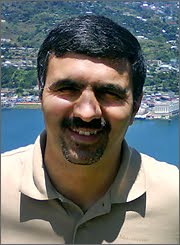Vietnam is a communistic country, with booming in its economy with a relatively open market and cheap labor costs. The country with its 90 million inhabitants is still an agricultural country and is located in the east coast of the Mekong region. It means plenty of agricultural and animal wastes and residuals. The country has followed the Chinese model in investing in small biogas plants at households and farm levels to take care of these wastes, particularly manure. The number that I got from different authorities in the country point to about 500,000 to one millions digesters in the country, most of them in small sizes (less than 10 m3). But the bigger ones such as 100-200 m3 are also available for the bigger farms.
I believe the small sizes of the digesters is a successful project. They usually use the gas for cooking applications, which results in reasonable saving with replacing the LPG gas or kerosene that is commonly used. However, the gas from the bigger digesters have more challenges. They are planned to produce electricity from the biogas. However, with the current prices of the electricity in the country and also low efficiency of the cheap gas engine generators (15-25% of the energy become electricity), this income from the electricity is not feasible!

(A typical underground household digester in Vietnam and Cambodia that convert manure to biogas for cooking and gas lights. I took the picture in Phnom Penh)





